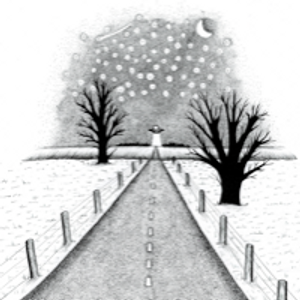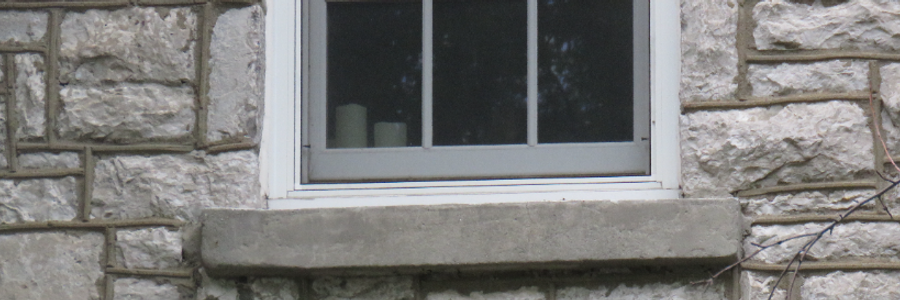

To Another Day
Sunday morn, skies that mourned,
wrinkled blankets, undone laundry,
notes that piled, lectures paused,
plates and bowls, last night meals.
Seasons changes, fall and rains,
falling apart, piece by piece.
Save me, please, screamed to the skies,
begged and hurt, lone in a crowd.
Deep inside, something changed,
life felt different, so did I.
What once was, what now is,
what would be, all blurred in one.
Barely human, days all same,
can't be machine, feelings clawed.
Bewitched in a maze, no way out,
dark that stayed, lights that frayed.
Would I leave, this game of hurt,
or would I stay, forever and frail?
Shall I try, when all things fail,
or just let go, as fate may plead?
But I will wake, to another day,
for dawn may break, and the sun may rise,
birds may sing, and the rains may pour,
nights may fall, and the cold may creep.
I will wake to another day.
Hug on a plate
“I’m sorry… I messed up. Again.”
He glared at me through the food portal and said something rapid in his native tongue that made the younger cook laugh and shake his head. Some sentiments need no translation to be understood.
I hadn’t been working at the restaurant for very long. The old cook was irritated with me and my wrong orders. My face at the food portal was the harbinger of extra work. Months passed. I got the hang of my job as a server, eventually. I also learned some colorful words in a new language.
One afternoon there was a rare lull. As I waited for customers, the cook gruffly motioned me to the kitchen. I immediately felt defensive, given our past. As I rounded the corner, he greeted me with a plate of pancakes. There was a fork stabbed right in the middle. I was confused.
“Eat.” He demanded, pushing the plate toward me.
I shook my head.
“No good,” he motioned my thin frame up and down. In a more gentle tone, he repeated, “Eat.”
I took the plate from him but looked around. Occasionally, an order was made in error or a pancake was too misshapen to plate. Food that was considered unsuitable to serve was thrown out. Company rules forbade employees from partaking in any.
He saw my gears turning and gestured to himself, using my old line, “I messed up.” With a wink and a shrug, he walked back to the grill.
I sat at a small table in the makeshift break room. Beneath a bulletin board plastered with safety data sheets, I pondered life of late. School almost completed, I was now in the midst of my internship at the hospital. Long hours there, followed by work here, I was on my feet for most of the day. I tend to lose my appetite when I’m stressed or busy, and I knew it was starting to show.
That first bite was a soft, pillowy piece of heaven. The pancakes were soaked in whipped butter and enveloped in thick maple syrup. I wasn’t quite sure pancakes had ever tasted this good. Perhaps I had just forgotten how good food could taste.
I fought back tears as I savored the entire short stack. The kindness of the old cook had taken me by surprise. He saw my need and met it the best way he knew how. The food was warm and sweet and tasted like a hug felt: wonderful.
From that day on, I made the effort to eat more regularly and to eat better quality foods. No more skipped meals. No more junk food swallowed hastily in my car as I was driving from one commitment to the next. My health and well-being became a priority again.
And at work, the old cook would tilt his head and shake his spatula at me with faux sternness, as to query if I was eating. However, this was always done with kindness in his eyes. I would smile and give him a thumbs-up. I was good.
A Sudden Change
We progressed slowly up the walk and Beatrice held on tightly to my hand. As the lead caretaker answered the door, she spilled her ruse and I stared into blank space.
“I found him on the side of the road. I asked if he was lost, but he wouldn’t tell me anything. I’ve never seen him around town before,” Beatrice carried on in such a convincing way that I would have believed her if it hadn’t been myself she was talking about. I simply fixed my eyes upon the floor and zipped my lips. My mind was racing… were my parents involved in some illegal business? Why did everyone have to lie and act so suspicious all of a sudden? Why had I really been hidden away in that mansion all my life? Perhaps I was thinking too hard about it all. Surely, I’d read too many fables and fairytales… but, some were biographies and Bible stories…
“Come, child! Tell us your name,” the older woman said, yanking me out of my thoughts and back to the present. I looked at Beatrice. The expression on her face let me know it was alright to say it because no one on the outside had ever heard my name before. I didn’t exist.
“If you won’t tell me your name, at least tell Ms. Gertrude,” she smiled.
I glanced back at the old woman. My name wouldn’t sound right coming out of anyone else’s mouth, I surmised. I’d heard only six people say it before, and I would never hear them say it again. It just wouldn’t be the same. My name was a memory. Hearing my name called aloud would only serve to remind me of everything that was once connected to it. My heart began to beat faster. My eyebrows furrowed. I looked Ms. Gertrude straight in the eye and said, “I don’t have one.”
“What, young man?” she asked, quite taken aback.
“I don’t have a name,” I repeated.
“Why certainly, that can’t be true,” she said kindly, kneeling down. “Where are your parents?”
“I don’t have any parents,” I said nonchalantly.
“I’m sorry to hear that…” she said in a low voice. “Might I ask what happened to them?”
“I don’t have any,” I said again.
“How did you get here in London?” she asked with a look of concern. “Did you grow up here?”
I shrugged and looked to the ground again.
She pursed her lips and shook her head. Then, she stood up and said a few more words to Beatrice.
“Don’t worry, lad. We will take care of you here,” she smiled, looking at me again,
“You’ll open up soon, and then we’ll find you a nice, loving family.”
I did not make eye contact.
“I pray the best for you, young man,” Beatrice said, taking my hands and gazing into my eyes one last time. She pulled me into a hug and whispered, “Ms. Gertrude will take great care of you.”
Someone
How different it is to meet the writer or in the street. You see them as if with a valise, carrying around in plot, surrounded by ideas. It's not easy to divorce the person, from his or her body-of-work...
...I look into your eyes and see the whole studio. And should I venture to ask, How does it go? It's in follow up to what I've already supposed.... the aire-of-confidence or self-defense written-in; the reflexive checking for pocket pen, the abstracted friendly nod, and catching of the breath, in secondary conversation with one's self...
Yes it's difficult to meet another artist in the street.
01.31.23
Describe someone to me Challenge @HelenaTherese
Twin Star Quilts and Peppermint Tea
Her mother always told her she stitched too quickly, but Eliza never cared. Her mother told her many things about herself she had long since learned were false. But now that she had her own household, it did not matter how quickly she stitched and how she pinned her hair and what she cooked and how much work she did every day.
She liked to believe she was more industrious than her mother, but as soon as that thought pleasured her mind, she pricked her finger with a needle and she was reminded of the sinfulness of pride.
"Serves you right, you arrogant woman," she chided herself, sucking on the injured finger so it did not stain her precious linen backing. That was something else her mother would scold her about if she saw. But at least Eliza could point out that she had two twin star quilts and her mother had none, because her mother could hardly sew a button.
"And there's pride again," she sighed, taking a sip of peppermint tea.
It was grown in her own garden, a lovely little sunny spot of the yard she had planted her first year of marriage. Will had teased her over it.
"Flowers and frippery all of it," he snorted. "Not even a vegetable garden."
But after he came down with a horrid influenza and Eliza stayed up every night nursing him with teas made from the very herbs in that "frippery," he said not a word against it again. He even helped her with it, which pleased Eliza indeed. Once she'd even heard him boasting of it in town to the other men.
"My wife's the smartest woman in the county," he said. "Has a garden full of herbs for any illness. Saved my life during the flu of '09."
Will was a fine man. He didn't smoke nor chew like the other men in town, and he never drank and he read the Word every day and led his household like a real man. He took fine care of her, too. Eliza always pitied the women at the quilting group who bemoaned their men who never came home for supper and who drank their money away and slept till the noon while the women did all the work. No, Will worked hard—harder than she did—and if they ever were short of food it was he who silently snuck the last tidbits onto her plate and refused seconds, even if Eliza argued that he needed it more for the plowing and the care of stock.
"You're my wife, and you're more important than I, love, so don't you try to persuade me out of it," he'd laugh, and give her a kiss.
And now he had even more excuse, for the baby inside her he had to protect as well as her, so Eliza had given up protesting. But they weren't short of food much anymore since their work had paid off and the farm prospered; only in the last days of winter when the storage was running low did they have to watch the servings.
But there would always be herbs a-plenty, and fresh peppermint for warm summer days like this one when she wanted a refreshing tea to keep her sharp for the complicated task of making her second twin star quilt.
The first she had made for her hope chest, not so long ago, when she was expecting to be married. It was blue and cream, since both she and Will favored blue, and it sat on their bed now. It was beautiful enough, though more juvenile work, the stitching somewhat untidy and a few of the corners not quite matched. But still Eliza saw it with pride, because it carried the hopes of a girl waiting to be married to the love of her life, hopes that had matured into the contentedness of a woman happy with her husband and her hearth and her home.
She fanned herself with a copy of the ladies' magazine after she finished the last stitch of a square. The summer sun seemed to stifle her in the house, and she wondered whether it would be better outside.
"Likely not," she thought with another sip of peppermint tea, the tanginess making her think of spicy autumn days and pumpkins and golden corn ready for harvest. The baby would be born then, too, right after the harvest. She hoped it would not be so close to the harvest; she didn't want to make herself a nuisance and set Will to fretting when he needed to be working. But she'd counted back and she suspected it would be near the harvest.
"I despise being a bother," she groaned, taking another swig of tea to settle her nervous stomach at the though. The baby kicked as if in protest, and she patted her stomach, leaning back with a sigh. "You're not the bother; I'm the bother if I'll be abed all through harvest with everyone fussing over me and your papa fretting every moment about such things that he knows nothing about."
But she smiled nonetheless, at the thought of a baby in the cradle before winter, a baby to see the vibrancy of autumn, to laugh and cry and make the house a bit fuller than it was before. This thought calmed her, and she curled up in the chair for a rest, her eyes drifting shut wearily as she waited and the sweet smells of linen and sweet summer grass and tangy peppermint tea lulling her to sleep.
Just hold that happy thought, Peter
Just hold that happy thought, Peter,
As you walk through life's rougher terrain.
For happiness, they say, is there
Within the pain.
And though you struggle every day,
With worries, fears, and endless stress,
Just close your eyes and think of play
And let your heart do the rest.
For laughter echoes like a chime,
And joy surrounds you like a hug.
It's all just a matter of time,
Before your troubles are unplugged.
But hold that thought, young Peter dear,
For fate has other plans, it seems.
And though you grasp for happiness near,
It slips away like silvery streams.
For tragedy strikes with a heavy blow,
And heartache grips you like a vice.
And all your laughter starts to slow,
Until there's nothing left but sighs.
The world, once bright and shining bright,
Is now a bleak and dreary place.
And every day feels like a fight,
As you struggle to keep pace.
Just hold that happy thought, Peter,
And let the memories sustain.
For though the present may be bitter,
The past still holds sweet refrain.
And though your heart may ache with pain,
And tears may flow like falling rain,
Just hold that happy thought in vain,
And know that joy will come again.




